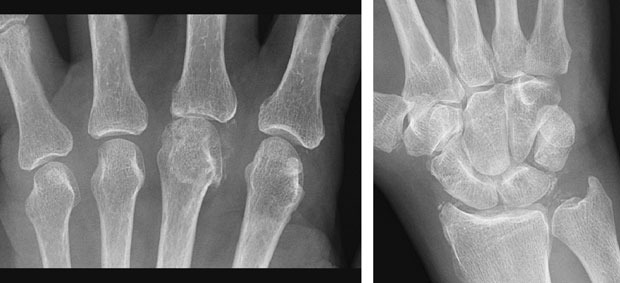OUD risk tests, gene therapies for sickle cell approved
This column reviews recent recalls, alerts, and approvals.
Recalls and warnings
An urgent medical device correction for the Novum IQ syringe infusion pump due to the potential for an incomplete infusion following one or more downstream occlusion alarms. Baxter International Inc. is developing a software upgrade to resolve the issue. A Class I recall of the pumps was previously issued for potential underdosing. There have been no reports of serious injury associated with the issue.
A class I recall of some StealthStation versions due to a software glitch. The system keeps track of where surgical tools are in relation to a patient's anatomy, and the software glitch may make the surgical plan data shift location after the initial test is changed. Use of an affected product may cause serious adverse health consequences, including death.
A class I recall of Olympus bronchofiberscopes and bronchovideoscopes because they may lead to burns or catch fire. The recall is a correction and not a product removal. Using the affected bronchoscopes may cause serious adverse health consequences, including critical burns in a person's airways or lungs, airway bleeding, trouble breathing, apnea, loss of consciousness, or death. There have been 192 complaints regarding this issue, including four injuries. There have been no deaths reported.
A class I recall of Panorama 1.0T HFO due to a risk of explosion during a quench procedure caused by excessive pressure buildup of helium gas. The recall, by Philips North America LLC, is a correction, not a product removal. There has been one reported event of an explosion in 22 years of use. There have been no reports of injury or death.
A recall of 0.9% sodium chloride and sterile water for irrigation USP by Nurse Assist, LLC, due to the potential of nonsterility. Urology and operating room-specific kits that contain the fluids are also being recalled by Cardinal Health.
A recall of one lot of Vigabatrin for Oral Solution, USP 500 mg, by InvaGen Pharmaceuticals Inc. Vigabatrin for Oral Solution, USP 500 mg, has been found to have seal integrity issues allowing for powder leakage from the pouch. An improper seal in the pouch may lead to the leakage of powder blend outside the pouch, resulting in a lower content of medicine inside the pouch compared to the label claim and potential underdosing. There have been no reports of adverse events related to the recall.
A recall of several lots and SKUs of Tracheostomy Care and Cleaning Trays by Medline Industries, LP, due to a potential component defect. The Tracheostomy Care and Cleaning Trays include a tracheostomy brush as a component that may have sharp edges at the tip that can puncture tubing during use and/or cause user injury during handling. Medline Industries, LP, has received one adverse event report associated with this product.
A recall of one lot of bleomycin for injection USP by Hospira due to the potential for presence of glass particulate matter. The recall was initiated due to a confirmed customer report for the presence of glass particulate within a single vial. Pfizer, Hospira's parent company, has not received reports of any adverse events related to this recall.
A recall of one lot, 1A16420, of Americaine 20% Benzocaine Topical Anesthetic Spray by Insight Pharmaceuticals due to the presence of benzene. While benzene is not an ingredient in any Americaine 20% Benzocaine Topical Anesthetic Spray products, a recent review by the manufacturer and its third-party lab found that a sample from one lot of the product showed a low level of benzene came from the propellant that sprays the product out of the can. To date, the company has not received reports of any serious adverse events related to this recall.
A recall of lots of 4.2% Sodium Bicarbonate Injection, USP ABBOJECT Glass Syringe, 5 mEq/10 mL; 8.4% Sodium Bicarbonate Injection, USP Lifeshield ABBOJECT Glass Syringe, 50 mEq/50 mL; and Atropine Sulfate Injection, USP Lifeshield ABBOJECT Glass Syringe, 1 mg/10 mL, due to the potential for presence of glass particulate matter, identified during product inspection. Hospira has not received reports of any adverse events associated with this issue for these lots.
A warning letter to Fresenius Medical Care AG & Co. KGaA regarding adulterated devices including dialysis systems and accessories, such as the 2008 Series Hemodialysis Machine.
A warning to consumers not to use counterfeit semaglutide (Ozempic) found in the U.S. drug supply chain. The FDA has seized thousands of units of the product for testing and does not yet have information about the drugs' identity, quality, or safety. Analyses also found the needles of the samples are counterfeit. FDA is aware of five adverse events from this lot, none of which are serious and all of which are consistent with known common adverse reactions to authentic Ozempic, which are nausea, vomiting, diarrhea, abdominal pain, and constipation.
ResMed notified customers about updated instructions and labeling for masks with magnets due to potential interference with certain medical devices. This voluntary field correction does not require a return of a mask with magnets unless the patient or someone in close physical contact has a contraindicated device or implant. ResMed has submitted five reports to relevant regulatory authorities of serious harm (medical intervention/hospitalization) that was potentially related to magnetic interference of a mask with a magnet with an implanted device. No permanent injuries or deaths have been reported.
Miscellaneous
A letter to clinical laboratory staff and clinicians to remind them about the potential for false-reactive (false-positive) results in herpes simplex virus type 2 (HSV-2) serological tests for genital herpes. When using current HSV tests, the chance of a false-positive result increases if a person gets a blood test too soon after infection, has a low risk of infection, or receives test results that are near the cutoff (low positive).
Approvals
The first test to help identify elevated risk of developing opioid use disorder (OUD). The test uses DNA to determine whether individuals are at risk of OUD. As part of a clinical evaluation, the AutoGenomics, Inc., AvertD test is intended to be used prior to first exposure to oral opioid pain medications in patients being considered for a four- to 30-day prescription for the treatment of acute pain, such as those scheduled to undergo a planned surgical procedure. The AvertD test, a prescription-use-only genetic laboratory test for patients ages 18 years and older, is to be used only for patients who consent to the test and have no prior use of oral opioid analgesics.
Casgevy and Lyfgenia, two cell-based gene therapies for the treatment of sickle cell disease in patients ages 12 years and older. Casgevy is the first FDA-approved treatment to utilize CRISPR/Cas9, a type of novel genome editing technology that modifies patients' hematopoietic stem cells. Lyfgenia uses a lentiviral vector for genetic modification. Both are approved for the treatment of patients with a history of vaso-occlusive events. Both products are made from the patients' own blood stem cells, which are given back as a one-time, single-dose infusion as part of a hematopoietic stem-cell transplant.
Accelerated approval of pirtobrutinib (Jaypirca) for adults with chronic lymphocytic leukemia or small lymphocytic lymphoma (CLL/SLL) who have received at least two prior lines of therapy, including a BTK inhibitor and a BCL-2 inhibitor. Efficacy was evaluated in BRUIN, an open-label, international, single-arm, multicohort trial that included 108 patients with CLL or SLL previously treated with at least two prior lines of therapy. Common adverse reactions included fatigue, bruising, cough, and musculoskeletal pain.
Marketing authorization for the Body Temperature Software (BTS) App intended to measure body temperature in people of all ages, excluding premature infants. When installed on a compatible smartphone with computing platforms and infrared sensors, the BTS App can measure and provide a reading of a person's body temperature.
Approval and implementation of safety labeling changes for opioid pain medicines to continue efforts to address the evolving opioid crisis and to urge health care professionals to take a more patient-centered approach when prescribing opioid analgesic products. The changes include a new warning about opioid-induced hyperalgesia (OIH) and information on differentiating OIH symptoms from those of opioid tolerance and withdrawal.
Approval of enfortumab vedotin-ejfv (Padcev) with pembrolizumab (Keytruda) for locally advanced or metastatic urothelial cancer (la/mUC). The FDA previously granted accelerated approval to this combination for patients with la/mUC who are ineligible for cisplatin-containing chemotherapy. Efficacy was based on a randomized trial of 886 patients. Statistically significant improvements in both overall survival and progression-free survival were demonstrated for enfortumab vedotin-ejfv with pembrolizumab compared with platinum-based chemotherapy. Common adverse reactions included increased aspartate aminotransferase level, increased creatinine level, rash, increased glucose level, and peripheral neuropathy, among others.
Approval of eplontersen (Wainua) to treat polyneuropathy of hereditary transthyretin-mediated amyloidosis (ATTRv polyneuropathy). The medicine is the only one approved for treatment of ATTRv polyneuropathy that can be self-administered via an auto-injector.
First-time generic drug approvals
Tranexamic acid in 0.7% sodium chloride injection, 1,000 mg/100 mL (10 mg/mL), for short-term use in patients with hemophilia to reduce or prevent hemorrhage and reduce the need for replacement therapy during and following tooth extraction. (No brand name provided)
Pazopanib tablets, 200 mg, for the treatment of adults with advanced renal cell carcinoma or advanced soft-tissue sarcoma who have received prior chemotherapy. (Brand name: Votrient)




